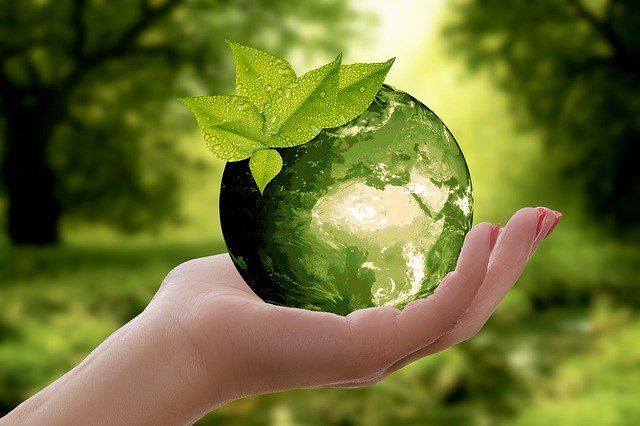Recycling isn’t a Chore: 5 Tips for Getting Started
Image by anncapictures from Pixabay
Some people live a carefree life, never thinking twice about the future or the impact they’re having on the “here and now.”
On the opposite side of the spectrum, you have people who are concerned about the environment and how they can make the world a better place.
It doesn’t matter which group you fall into — or if you’re somewhere in between — recycling is one of those things that you should get on board with. It’s easy to put it off for one reason or the next, but once it’s a habit you’ll realize how simple it really is.
If you’re the type of person who considers recycling to be a chore, now’s the time to change your line of thinking. Here are five tips for getting started:
1. Avoid plastic bags
Many people don’t realize it, but plastic bags are the quickest way to ruin a batch of recyclables.
To prevent this, do your best to avoid plastic bags altogether. For example, take your own disposable bags to the grocery store. Not only does this help save the environment, but you’ll soon find that it’s more convenient.
2. Become a more responsible consumer
This means many things, such as doing your research before you purchase a product that could be bad for the environment.
For example, wool dryer balls are growing in popularity because they’re eco-friendly and longer-lasting than traditional dryer sheets.
If you have concerns about buying products that you can’t recycle, start shopping online at a zero waste store. This way, no matter which products catch your eye, you know you’re not purchasing something that’s bad for the environment.
3. Know what you can and can’t recycle
This changes from one area to the next, so check with your provider to see what they will and won’t pick up from your home.
It’s a common misconception that any item with a recycling triangle is recyclable. Double-check anything that you have questions about. It’s much better to take this approach than it is to attempt to recycle something that could do nothing more than get in the way.
4. Rinse your recyclables
If you’re going to recycle anything with food on it, be sure to rinse it off to the best of your ability.
Should you neglect to do so, it’s likely to attract critters, such as raccoons and mice. On top of this, it takes more money and energy to clean these items, which is counterproductive.
You don’t have to go crazy. Just take a few seconds to rinse any recyclables that need it. It’s a simple step you can take to have a bigger impact.
5. Leave black plastic behind
Did you know that black plastic should be thrown in the trash, as opposed to being recycled?
This isn’t because there’s something terribly wrong with black plastic. It’s because its non-reflective nature allows it to slip past scanners at recycling facilities
When this happens, the plastic can contaminate other materials as it’s not sorted in the proper manner.
Also, since black plastic can only be recycled into other black plastic materials, it’s costly to do so.
You may not use a lot of black plastic, but when you do it’s important to place it in the trash.
Frequently Asked Questions
In addition to the tips above, it never hurts to address questions related to recycling. Here is a handful you should answer as they pertain to your personal situation:
- What can you recycle in your local area?
- What method will you use to collect recyclables?
- Who can you contact about recycling in your local area?
- Are there other trash management options as effective as recycling?
- What items should you never try to recycle?
- What is composting? How does it relate to recycling?
- Are there any recycling centers in your area that accept items in exchange for money?
Final Thoughts
Now, what are your thoughts on recycling? Are you confident in your ability to implement one or more of these tips into your daily life?
Don’t wait another day to change your approach to recycling. You and you alone can make a big impact on the future!

